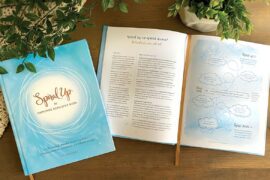3. Give support
Encourage your child so he knows he has the support to do hard things. If your child isn’t meeting your expectations, ask yourself what support she needs. For instance, you want her to take her plate to the kitchen. You know it takes thirty days to create a new habit. So every single meal you connect warmly with her as you encourage, remind, and motivate her to take her plate to the kitchen. (Notice that the connection has to be positive so the child wants to create the habit?). Over time, you gradually help your child create good habits that she “owns,” for life. She begins to see herself as someone who takes her plate to the kitchen, who’s responsible and considerate, who takes care of herself and her family.
4. Expect your child to “repair” relationships when he’s done damage
When kids’ mistakes are met with compassion and encouragement instead of shame, they WANT to do better next time. Help him with his upset and anger first; then he’ll be open to repair. Because it feels good to redeem ourselves, repair is empowering, as long as you’re careful to make it an expectation but never a punishment. (That means he needs to decide what to do to initiate the repair.). Like cleaning up any other mess, the experience of repair makes us more careful about making messes to begin with.
When kids’ mistakes are met with compassion and encouragement instead of shame, they WANT to do better next time.
5. Emotion-Coach
When kids know what’s right but won’t do it, that’s a red flag that they’re in the grip of big emotions. The only way to “get rid” of emotions is to feel them, but the good news is that once you empathise with your child’s upset and offer understanding, he’ll “show” you those emotions and they’ll begin to evaporate. He learns that emotions aren’t an emergency, which helps him regulate them, so he can regulate his behaviour–and make better choices.
In practice? You empathise instead of teaching when your child is having a hard time. That calms the drama. Later, your child will be ready to learn, and you can teach.
Isn’t all this more work?
Yes. But this work on our part is how kids develop self-discipline. Why would a child choose, over and over, to do the harder thing? Because on some level there’s a bigger pay-off — initially that warm relationship with the parent, and over time that clear sense of him or herself as a good person, who chooses to do the right thing. That identity shapes their choices through life. It’s the foundation of the inner compass. And it raises a child you’ll be so proud to parent.
Originally published here.
Dr. Laura Markham is the founder of AhaParenting.com and author of Peaceful Parent, Happy Kids, Peaceful Parent, Happy Siblings and her latest book, the Peaceful Parent, Happy Kids Workbook.










